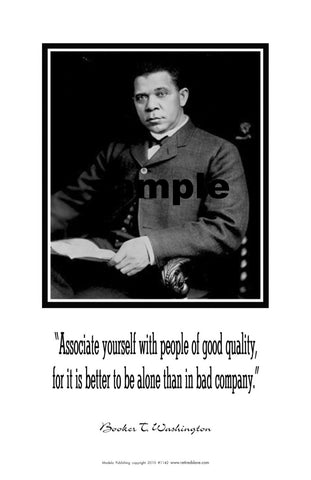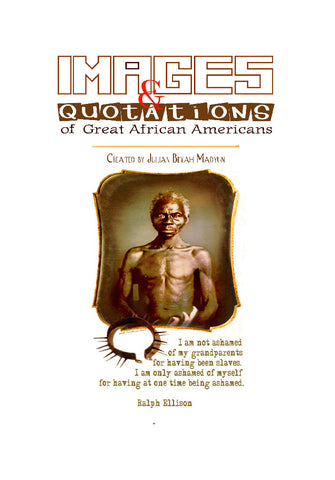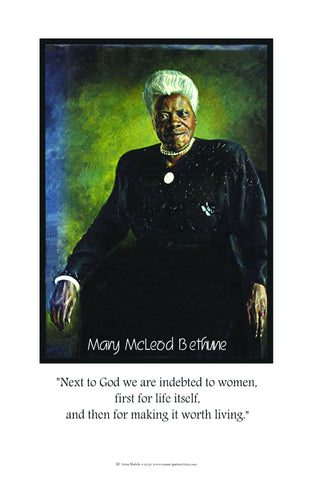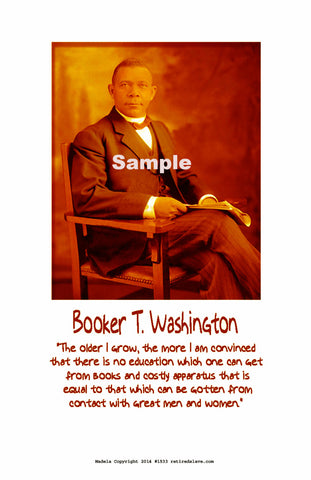John Henrik Clarke #1550
$ 8.00
Caption from poster__
John Henrik Clarke
My main point here is that if you are
the child of God and God is a part
of you, the in your imagination God
suppose to look like you. And when
you accept a picture of the deity
assigned to you by another people,
you become the spiritual prisoners
of that other people.
Dr. John Henrik Clarke was born January 1, 1915 in Union Springs, Alabama and died July 16, 1998 in
New York City. His family came from a long line of sharecroppers. Clarke noticed that although many
bible stories "unfolded in Africa...I saw no African people in the printed and illustrated Sunday school
lessons," he wrote in 1985. "I began to suspect at this early age that someone had distorted the image
of my people. My long search for the true history of African people the world over began." That search
took him to libraries, museums, attics, archives and collections in Asia, the Caribbean, Europe, Latin
America and Africa. What he found was that the history of black people is worldwide; that "the first
light of human consciousness and the world's first civilizations were in Africa"; that the so called Dark
Ages were dark only for Europe and that some African nations at the time were larger than any in
Europe; that as Africa sends its children to Europe to study because that is where the best universities
are, early Greece once sent its children to Africa to study because that was where the best universities
were; and that slavery, although devastating was neither the beginning nor the end of Black people's
impact on the world. Clarke gathered his findings into books on such figures as the early 20th century
mass movement leader Marcus Garvey, into articles with titles like "Africa in the Conquest of Spain"
and "Harlem as mecca and New Jerusalem," and many books including American Heritage's two volume
"History of Africa." While he was teaching at Hunter College in New York and at Cornell University in
the 1980's, Clarke's lesson plans became well known for their thoroughness. They are so filled with
references and details that the Schomburg Library in Harlem asked for copies. Clarke plans to provide
them, he said, "so that 50 years from now, when people have a hard time locating my grave, they won't
have a hard time locating my lessons." In 1985, the year of his retirement, the newest branch of the
Cornell University Library- a 60 seat, 9,000 volume facility- was named the "John Henrik Clarke Africana
Library."
Now available 11" x 17"
Print with Black Frames $25.00
For 24" x 36' Size prints
please call 678-608-7892 to order




